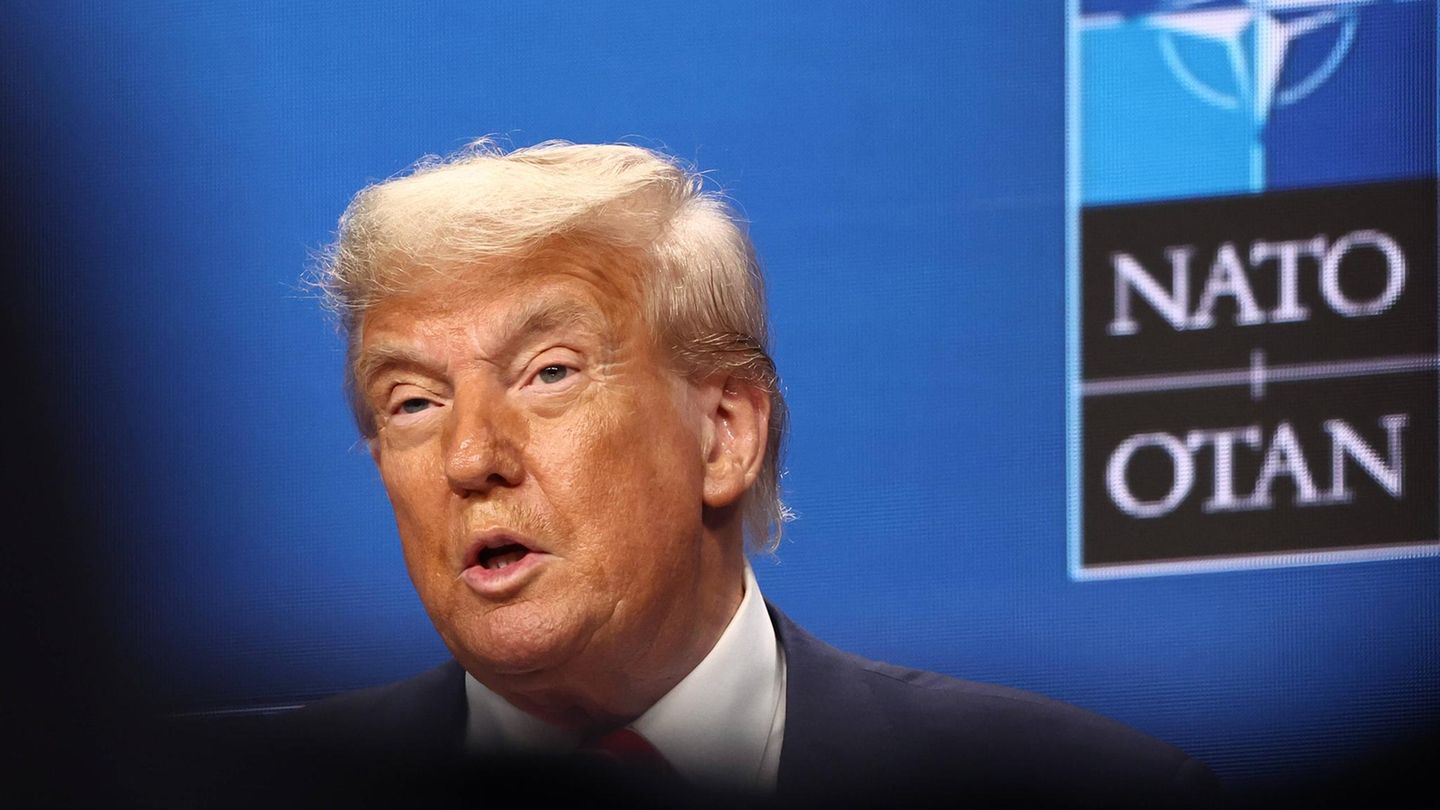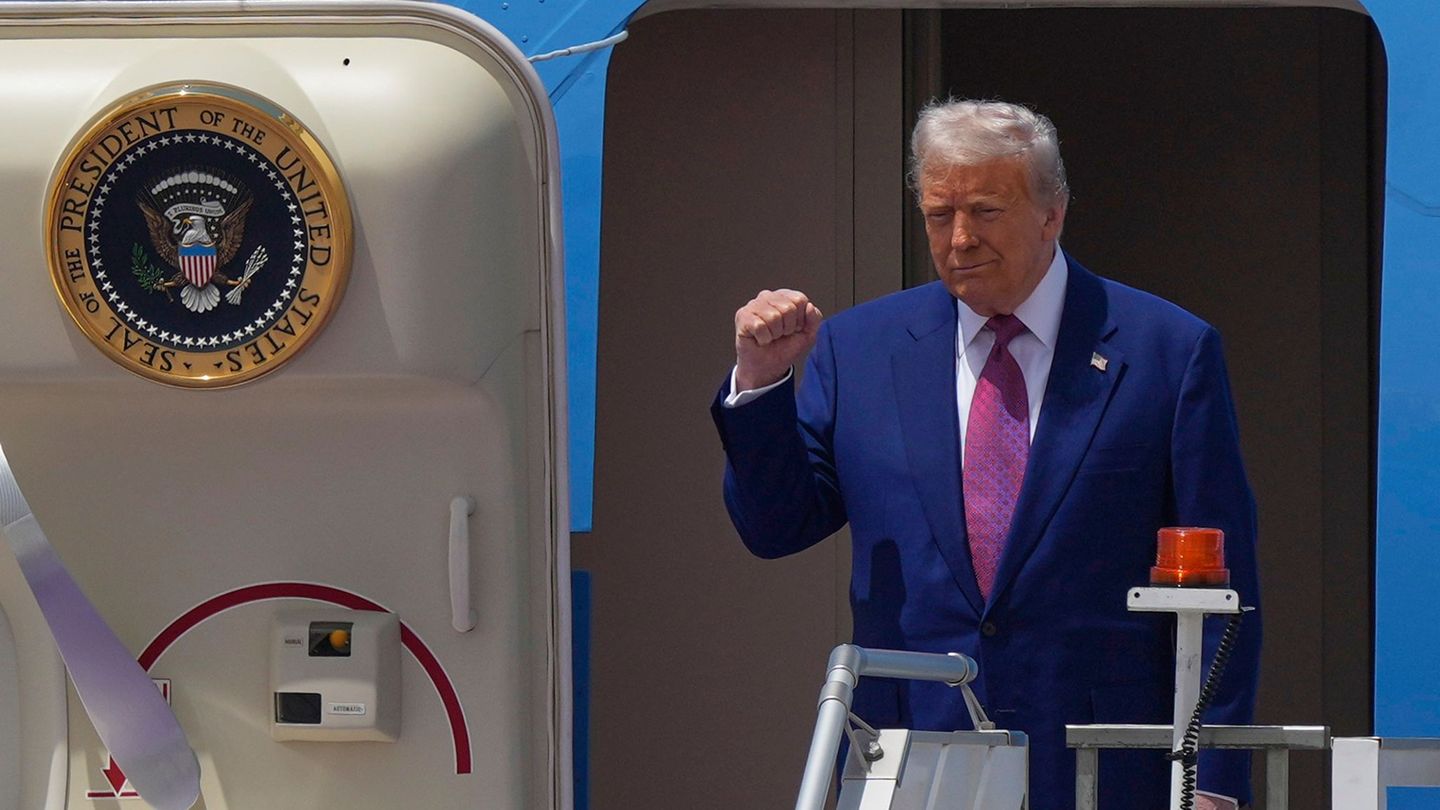Tariffs of 25 percent already apply to electric cars from China in the USA. Soon there will be significantly more. The White House accuses China of unfair competition and is taking action.
US President Joe Biden is blocking electric cars from China from entering the USA with special tariffs of 100 percent. The US government is also imposing new or significantly increased tariffs on, among other things, solar cells, semiconductors, harbor cranes and medical items such as cannulas and protective masks.
China is flooding global markets with artificially cheapened exports, the US government said in its announcement. At the same time, the measures are limited to a few strategically important areas.
Biden is striving for a stable relationship with China, the director of the White House National Economic Council, Lael Brainard, assured journalists. She did not want to speculate about possible retaliation from Beijing. According to the US government, imports from China worth $18 billion will be affected by the new measures.
Biden for fair competition
Chinese electric cars were already subject to tariffs of 25 percent in the USA, which – unlike in Europe – kept them out of the market. Chinese manufacturers receive unfair subsidies and could thereby distort competition with cheap vehicles, said Biden’s economic advisor Brainard.
Chinese electric car exports will have increased by 70 percent in 2023 – and that is endangering investments in other countries, argues the US government. “The president will not allow this to happen,” Brainard said. Tesla boss Elon Musk, among others, warned of the dominance of Chinese manufacturers at the beginning of the year: “If there are no trade barriers, they will pretty much destroy most other car companies in the world.”
In his hometown of Scranton, Pennsylvania, Biden saw what happens when production moves to other countries, the trade representative said. That’s why he wants to ensure fair competition. Biden, who wants to run for re-election in November, made tens of billions during his term in office for investments in, among other things, the chip industry, infrastructure and manufacturing. Biden’s predecessor Donald Trump had already imposed tariffs on imports from China.
The other special tariffs for Chinese products in detail:
– Solar cells: Tariffs will rise from 25 to 50 percent this year. Chinese production capacity in the area is on track to be twice as high as short-term expected global demand, Brainard warned. This is also due to unfair practices. China controls more than 70 percent of global capacity in every production step – and that endangers security of supply. In Germany, the solar company Meyer Burger from Switzerland in Saxony closed its production site, citing price pressure from the Far East.
– Port cranes: New tariffs of 25 percent will be imposed on the large machines that load and unload ships. The US government wants to build more harbor cranes in its own country again. Last year there were also warnings that technology built in China could pose the risk of espionage or sabotage.
– Medical devices: A tariff of 50 percent will be introduced for syringes and needles. For some protective masks, tariffs will rise from a maximum of 7.5 percent to 25 percent. For medical gloves, the increase from 7.5 to 25 percent will be postponed until 2026.
– Semiconductors: Tariffs are expected to rise from 25 to 50 percent by 2025. The USA doesn’t come with the most modern chips from China – but semiconductor technology from older production processes that is used in cars or household appliances, for example. At the same time, Biden is spending $39 billion to subsidize new chip factories in the USA. This is also seen as a question of national security.
– Steel and aluminum: Tariffs for some metal products rise from 7.6 to 25 percent. Brainard pointed out, among other things, that the Chinese steel industry relies on production processes with higher CO2 emissions, while American manufacturers invest in more climate-friendly technologies.
– Batteries: Tariffs on lithium-ion batteries for electric cars are expected to rise from 7.5 to 25 percent this year. For such batteries for other technology, the increase will be postponed until 2026. There are also tariffs of 25 percent for some electronic components such as magnets.
China denies allegations
China repeatedly complains about the US’s economic coercion. Instead of correcting the tariffs under former President Donald Trump, which the WTO considered a violation, the US continued to politicize economic and trade issues, Chinese Foreign Ministry spokesman Lin Jian recently said. Beijing will take all necessary measures to defend its interests.
China denies that its economic policies are promoting surpluses. “The so-called problem of Chinese overcapacity does not exist, neither from the perspective of a comparative advantage nor in the light of global demand,” emphasized China’s state and party leader Xi Jinping recently in France during his visit to Europe. Instead, the People’s Republic argues that its “green energy” industry has reduced global inflationary pressures and contributed to the fight against climate change. US ministers had already criticized the Chinese economic practices during previous visits to China.
Source: Stern




